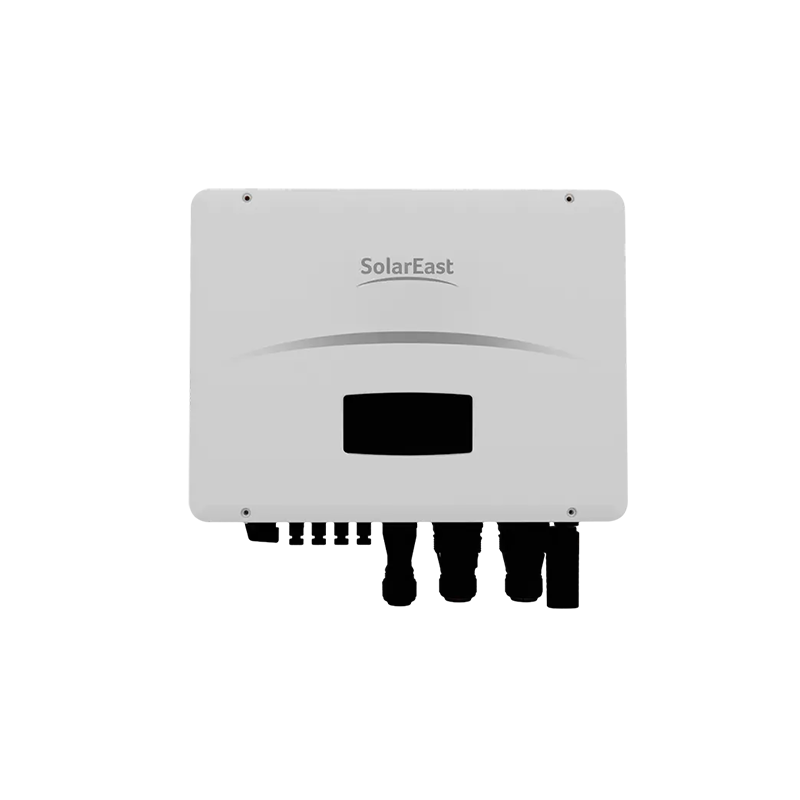As businesses and industries increasingly seek reliable energy storage solutions, choosing between off-grid and grid-tied hybrid inverters becomes a critical decision. Both inverter types have distinct advantages, but selecting the right one depends on energy needs, location, and operational goals. In this guide, we will compare off-grid and grid-tied hybrid inverters, helping you determine which is best suited for your energy storage system.
Understanding Off-Grid and Grid-Tied Hybrid Inverters
Off-Grid Inverters
Off-grid inverters operate independently of the utility grid, making them ideal for remote locations or areas with unreliable grid access. These inverters convert DC power from solar panels into AC power for immediate use or store excess energy in batteries for later consumption.
Key Features:
- Energy Independence: Off-grid inverters provide complete autonomy from utility providers.
- Battery Storage: Excess energy is stored in batteries for nighttime or cloudy days.
- No Grid Connection: Ideal for businesses operating in remote areas without grid access.
- Higher Initial Costs: Requires a robust battery bank, increasing upfront investment.
Grid-Tied Hybrid Inverters
Grid-tied hybrid inverters combine the benefits of grid connectivity with energy storage. These inverters enable businesses to utilize solar power while remaining connected to the utility grid, ensuring a continuous energy supply.
Key Features:
- Dual Functionality: Can switch between solar, battery storage, and grid power.
- Energy Cost Savings: Reduces reliance on expensive grid electricity by using solar energy first.
- Grid Exporting: Excess energy can be fed back into the grid, potentially earning credits or revenue.
- Lower Battery Dependency: Batteries serve as a backup rather than a primary power source.
Comparing Off-Grid and Grid-Tied Hybrid Inverters
1. Reliability and Energy Security
- Off-Grid: Ensures energy security in locations with no grid access or frequent power outages.
- Grid-Tied Hybrid: Provides reliability by allowing businesses to draw power from the grid when solar or battery power is insufficient.
2. Installation and Maintenance Costs
- Off-Grid: Higher initial investment due to battery storage requirements.
- Grid-Tied Hybrid: Lower upfront costs as the system can leverage grid power, reducing battery dependency.
3. Operational Flexibility
- Off-Grid: Best for businesses with consistent energy demands and remote operations.
- Grid-Tied Hybrid: More flexible, suitable for urban or semi-urban businesses that want to optimize solar energy usage while maintaining grid connectivity.
4. Regulatory Considerations
- Off-Grid: No dependence on grid regulations, making it suitable for locations with strict energy policies.
- Grid-Tied Hybrid: Must comply with grid interconnection policies, which may vary by region.
5. Long-Term Savings and ROI
- Off-Grid: Higher savings in the long run, as businesses eliminate grid energy costs.
- Grid-Tied Hybrid: Faster ROI due to reduced initial investment and the ability to sell excess power to the grid.
China Hybrid Inverter Manufacturer
Which Inverter is Best for Your System?
Choose Off-Grid Inverters If:
- Your business operates in a remote location with no or unreliable grid access.
- You require full energy independence and control.
- You can invest in a robust battery storage system.
Choose Grid-Tied Hybrid Inverters If:
- You want to optimize solar power usage while keeping the grid as a backup.
- Your business is located in an area with a stable grid but high electricity costs.
- You seek a cost-effective solution with a faster ROI.
Recommended Solution: SolarEast Hybrid Inverters
At SolarEast, we provide advanced energy storage solutions tailored to business needs. Our hybrid inverters offer:
- Seamless transition between solar, battery, and grid power.
- High efficiency with smart energy management features.
- Scalability, making them suitable for industrial and commercial applications.
Explore our cutting-edge energy storage solutions at SolarEast and find the best inverter for your system today.
Conclusion
Selecting between off-grid and grid-tied hybrid inverters depends on your business's location, energy demands, and financial strategy. While off-grid systems ensure energy independence, grid-tied hybrids offer cost efficiency and flexibility. By evaluating your operational needs, you can make an informed decision that maximizes energy savings and system reliability. For expert consultation, contact SolarEast and power your business with the best energy storage solution.




